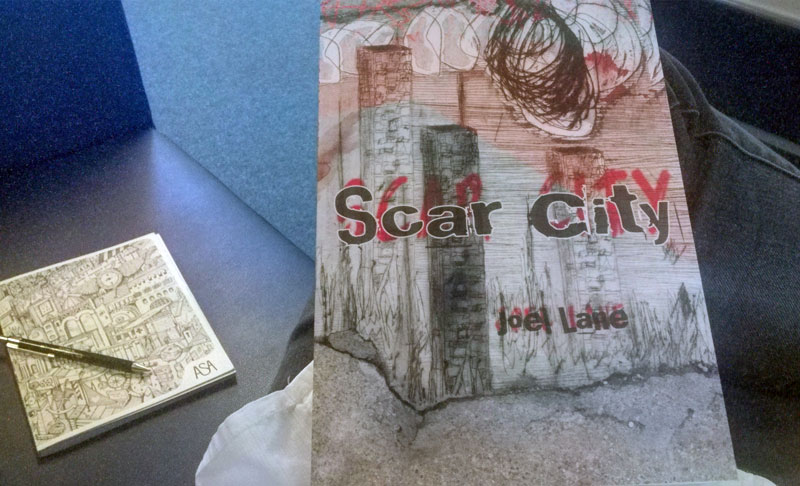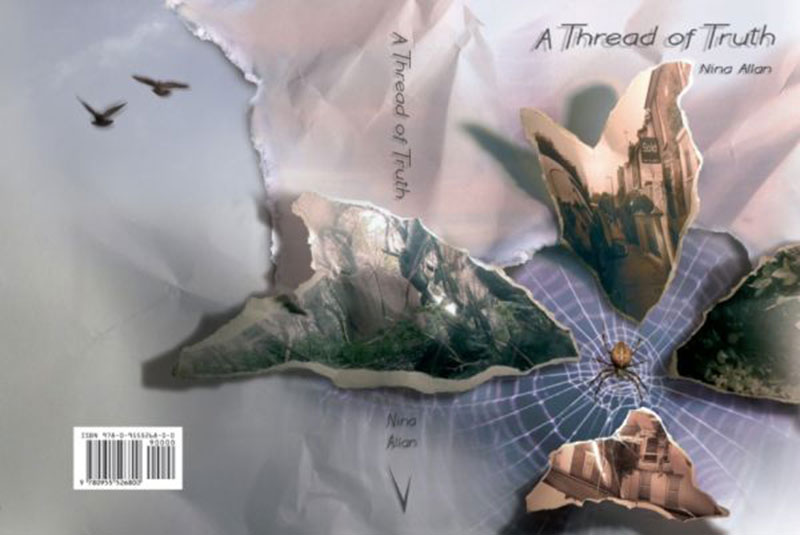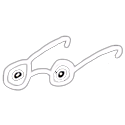1. Do you have a specific writing style?
The language of a story is very important to me. I believe that a story’s language should do more than simply tell you what is happening – it should also convey to the reader some sense of what the events mean within the context of the narrative and how it feels for a protagonist to be experiencing them. Language for a writer is like paint for an artist in that way – I don’t want to produce just an outline, I want to make a complete painting! The words we choose should not be there merely by chance – they should be selected specifically, and every word should have a reason for being there. It’s important to me that my stories should have an element of the poetic about them – poetry is language distilled to its essence – but equally I don’t want my narratives to be so dense with language that the reader has trouble working out what’s going on. The story should be clear, and hopefully exciting to follow. But I would like the reader to come away with the feeling of having experienced something more than just a story.
2. What books have most influenced your life?
The twin influences on my reading and writing life have been science fiction and Russian literature! Unusual bedfellows perhaps, but that’s how it’s been for me – and with science fiction so popular in Russia, perhaps it’s not as unusual as it first seems. If I had to pick five books that have stayed with me and continue to inspire me, I’d list the following: Roadside Picnic, by Boris and Arkady Strugatsky, Pale Fire, by Vladimir Nabokov, The Book and the Brotherhood, by Iris Murdoch, The Course of the Heart, by M. John Harrison, and The Affirmation, by Christopher Priest. But then it’s impossible to leave out J. G. Ballard, Roberto Bolano, Joyce Carol Oates, Caitlin R. Kiernan… The list goes on forever! I think what all these books and writers have in common though is their obsession with strangeness, with the essential mysteriousness of the universe, with the sense that what we think of as normality could be undermined or overthrown at any moment.
3. If you had to choose, which writer would you consider a mentor?
My partner, the writer Christopher Priest has been hugely important to me as a mentor, both before we met and afterwards. I was a fan of his writing for almost twenty years before we met in person, and during that time I came to appreciate his work as a game-changer for science fiction. I thought he was doing extraordinary things with both theme and form, and that continues to this day. Now that we are partners, we are also each other’s first readers! We talk about writing incessantly. I’ve learned so much from him, not least the value of a proper second draft.
4. What are your current projects?
I’ve recently completed two new short stories that should be appearing in anthologies later this year, and I’m now working on a new novel. I don’t have a title for it yet, but I am about a third of the way through the first draft, and I can tell you that the protagonist is a woman who believes she’s been abducted by aliens.
5. How much research do you do?
The trick with research is not letting it show! I like to gravitate towards subjects that are already a part of my imaginative lexicon – I want to communicate a natural passion for the subject, not deliver a lecture. When something interests me, it’s normal and exciting for me to want to read as much as I can about it, and so accumulate knowledge. More directed research is essential to check facts, of course, but on the whole I try to let my natural enthusiasms dictate the course of my reading, and my writing, rather than self-consciously picking a subject because someone has suggested that it might be interesting.
6. Do you write full-time or part-time?
After many years of having to fit my writing around a day job, I am currently enjoying life as a full-time writer.
7. Where do your ideas come from?
Ideas are everywhere! I have never found any problem in finding ideas I want to work with – the difficult part is getting them on to paper. I’ve always thought the fun part of being a writer is that initial moment of inspiration, when you see, hear or read about something you feel you absolutely have to write about. From the moment you begin trying to communicate through the medium of the written word, you’re engaged in an uphill struggle. If you can manage to adequately convey even half of what’s in your mind, you’re doing OK…
8. How can readers discover more about you and you work?
I keep a regular blog at ninaallan.co.uk, where I like to share news, and also my thoughts about books I’ve read, about current debates in science fiction and what’s going on in the world of literature generally. You can also find a full list of my books and short stories, as well as links to interviews, reviews of my work, and fiction you can read for free online. As well as my own blog, I write regular reviews for the online magazine Strange Horizons, I have a column in the bi-monthly SF magazine Interzone, and you can listen to me arguing about British science fiction on the Coode Street Podcast here. My debut novel The Race is out now from NewCon Press. It’s set in a future Britain, and features bio-engineering, climate change – and books, of course.




